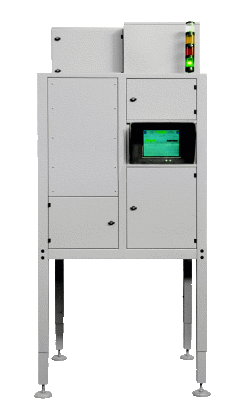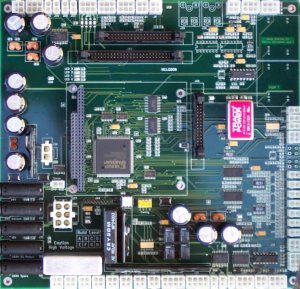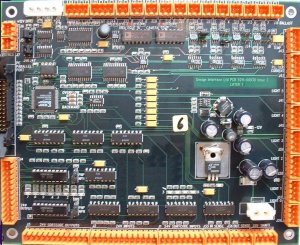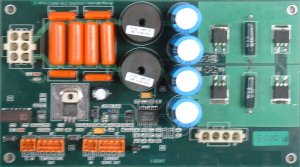Process Monitoring and Control
Harsh environments require robust systems. Manufacturing environments and control and monitoring tasks often require continuous operation for long periods with little or no maintenance. An electronic control system may need to be protected against temperature extremes, ingress of dust or water, condensation, vandalism, EMI, noisy power supplies or vibration.

In order to provide a suitable environment for microprocessor based systems, particularly those with complex transducers and analogue signal conditioning, Design Interface Ltd has developed enclosures which employ:
 Ducted ventilation
Ducted ventilation Air conditioning
Air conditioning Heat exchangers
Heat exchangers Solid state (Peltier) temperature control
Solid state (Peltier) temperature control Sealing to IP65 standard
Sealing to IP65 standard Potting
Potting Screening
Screening Line conditioning
Line conditioning Uninterruptable power supplies
Uninterruptable power supplies
In addition to monitoring some external process the system should be capable of monitoring itself and raising an alarm if, for instance, the protected internal environment is compromised in some way.
In industrial applications we have long advocated the 'intelligent' factory model where distributed monitoring and control nodes are linked through a 'Field Bus' network. Process information can then be viewed and stored remotely and data dependent alarm conditions can be defined.
System Control Board I
This system controller uses a PC104 based PC (not fitted in this image) mounted on a motherboard which provides all of the required digital and analogue I/O. An FPGA offloads some of the low level monitoring from the PC and provides: bus decode logic; timers; counters; interfaces and safety interlocks.

System Control Board II

Temperature Control Board
Simpler controllers such as this Class D H-bridge driver for Peltier devices are completely self contained. A PWM controller is interfaced to a thermocouple and a bidirectional driver to provide closed loop temperature control of a specialised camera to within a few tenths of a degree centigrade.
